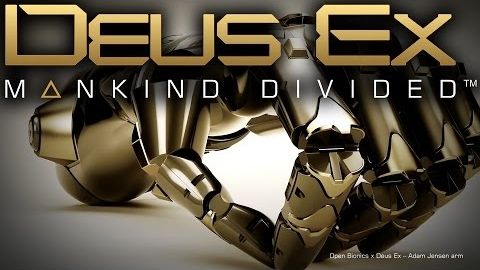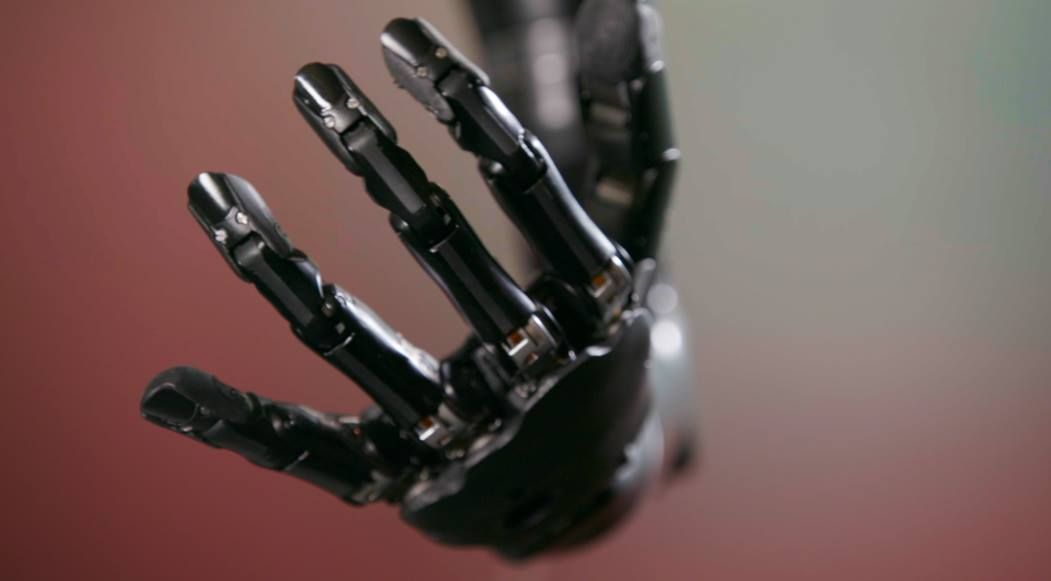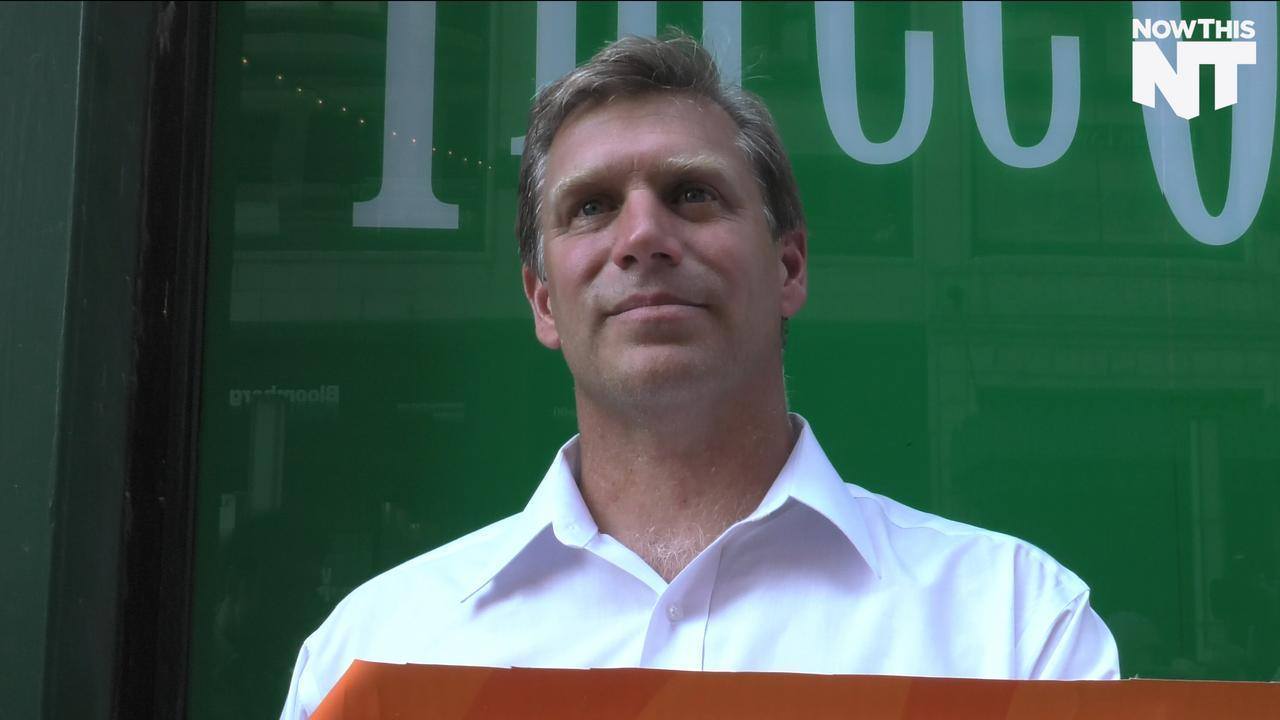Archive for the ‘transhumanism’ category: Page 110
Aug 24, 2016
The Jesus Singularity
Posted by Zoltan Istvan in categories: geopolitics, life extension, mobile phones, robotics/AI, singularity, transhumanism
I’m super excited to share my first fiction since writing “The Transhumanist Wager” four years ago. Vice Motherboard has published this short story of mine on the challenge of AI becoming religious—and what that might mean for humanity. It’s a short read and the story takes place just a few years into the future. And yes, the happenings in this story could occur.
For the second installment of our series exploring the future of human augmentation, we bring you a story by the Transhumanist Party’s presidential candidate (and occasional Motherboard columnist), Zoltan Istvan. Though he’s spent most of the last year traveling the nation in a coffin-shaped bus, spreading the gospel of immortality and H+, he’s no stranger to fiction. His novel, The Transhumanist Wager, is about the impact of evolving beyond this mortal coil. This story is even bolder. Enjoy the always provocative, always entertaining, Zoltan Istvan. –the editor.

Aug 24, 2016
Steve Fuller’s Review of Homo Deus: A Brief History of Tomorrow by Yuval Noah Harari
Posted by Steve Fuller in categories: big data, bioengineering, biological, bionic, cyborgs, disruptive technology, energy, evolution, existential risks, futurism, homo sapiens, innovation, moore's law, neuroscience, philosophy, policy, posthumanism, robotics/AI, science, singularity, theory, transhumanism
My sociology of knowledge students read Yuval Harari’s bestselling first book, Sapiens, to think about the right frame of reference for understanding the overall trajectory of the human condition. Homo Deus follows the example of Sapiens, using contemporary events to launch into what nowadays is called ‘big history’ but has been also called ‘deep history’ and ‘long history’. Whatever you call it, the orientation sees the human condition as subject to multiple overlapping rhythms of change which generate the sorts of ‘events’ that are the stuff of history lessons. But Harari’s history is nothing like the version you half remember from school.
In school historical events were explained in terms more or less recognizable to the agents involved. In contrast, Harari reaches for accounts that scientifically update the idea of ‘perennial philosophy’. Aldous Huxley popularized this phrase in his quest to seek common patterns of thought in the great world religions which could be leveraged as a global ethic in the aftermath of the Second World War. Harari similarly leverages bits of genetics, ecology, neuroscience and cognitive science to advance a broadly evolutionary narrative. But unlike Darwin’s version, Harari’s points towards the incipient apotheosis of our species; hence, the book’s title.
This invariably means that events are treated as symptoms if not omens of the shape of things to come. Harari’s central thesis is that whereas in the past we cowered in the face of impersonal natural forces beyond our control, nowadays our biggest enemy is the one that faces us in the mirror, which may or may not be able within our control. Thus, the sort of deity into which we are evolving is one whose superhuman powers may well result in self-destruction. Harari’s attitude towards this prospect is one of slightly awestruck bemusement.
Here Harari equivocates where his predecessors dared to distinguish. Writing with the bracing clarity afforded by the Existentialist horizons of the Cold War, cybernetics founder Norbert Wiener declared that humanity’s survival depends on knowing whether what we don’t know is actually trying to hurt us. If so, then any apparent advance in knowledge will always be illusory. As for Harari, he does not seem to see humanity in some never-ending diabolical chess match against an implacable foe, as in The Seventh Seal. Instead he takes refuge in the so-called law of unintended consequences. So while the shape of our ignorance does indeed shift as our knowledge advances, it does so in ways that keep Harari at a comfortable distance from passing judgement on our long term prognosis.
Aug 20, 2016
Augmented Future Open Bionics Trailer — Deus EX: Mankind Divided
Posted by Lily Graca in categories: cyborgs, entertainment, transhumanism

Open Bionics, Eidos-Montréal and Razer are working together to bring Deus Ex inspired augmentations to life.
http://gaming.youtube.com/gamespot
Continue reading “Augmented Future Open Bionics Trailer — Deus EX: Mankind Divided” »
Aug 19, 2016
Some thoughts on Deus Ex: Mankind Divided, Augmentation and Transhumanism
Posted by Karen Hurst in categories: evolution, transhumanism
Aug 19, 2016
Bionic Woman: Humans+
Posted by Albert Sanchez in categories: biotech/medical, cyborgs, transhumanism

Motherboard visits a woman using one of the most advanced prosthetic limbs in the world—one that can touch and feel like a flesh-and-blood hand. Full video: http://bit.ly/2b6JS9W
Aug 18, 2016
I’m the presidential candidate who wants us to live forever
Posted by Zoltan Istvan in categories: geopolitics, life extension, transhumanism
My new article on transhumanism in New Scientist. Look for it in the print edition too:
Forget Trump and Clinton, I’m campaigning for the US to embrace technology with the potential to make us immortal, says White House contender Zoltan Istvan.
Aug 16, 2016
Gary Johnson Wants Driverless Secret Service Cars and a US-Led Gene Editing Revolution
Posted by Zoltan Istvan in categories: bioengineering, biotech/medical, geopolitics, life extension, robotics/AI, transhumanism
My exclusive interview with Libertarian presidential candidate Gary Johnson on some hard science & tech issues, including transhumanism, longevity, AI, and gene editing. This is also my first story for Futurism. For the record, I am trying, along with millions of others, to get Gary Johnson into the Presidentia l debates! No matter who you plan to vote for, it would be good for America to have him in the debates so a third voice is heard:
Libertarian Presidentia l candidate Gary Johnson wants humans to live a lot longer and isn’t worried about AI becoming the Terminator. Here, Futurist Zoltan Istvan gains an exclusive interview with Johnson, who is polling double digits nationally and hopes to be in the Presidentia l debates with Trump and Clinton in October.
Disclaimer: The views and opinions expressed are solely those of the author. They do not necessarily represent the views of Futurism or its affiliates.
Aug 13, 2016
The Transhumanist party wants to use technology to solve the world’s problems — meet their presidential candidate
Posted by Zoltan Istvan in categories: economics, geopolitics, transhumanism

A short video from Now This on my campaign. It highlights my interview from the RNC in Cleveland and ideas on Universal Basic Income:
Aug 12, 2016
Living Forever Has Never Been More Popular
Posted by Zoltan Istvan in categories: biotech/medical, geopolitics, life extension, transhumanism

My dispatch for Vice from the recent successful RAAD Festival—a giant gathering of longevity enthusiasts:
In less than a month, I’ll mark the two-year anniversary to my presidential campaign for the Transhumanist Party. My run for the White House was never about winning, but spreading the idea that Americans can achieve indefinite lifespans through science and technology—if only the government were to help out and put significant resources into the anti-aging field.
Continue reading “Living Forever Has Never Been More Popular” »













